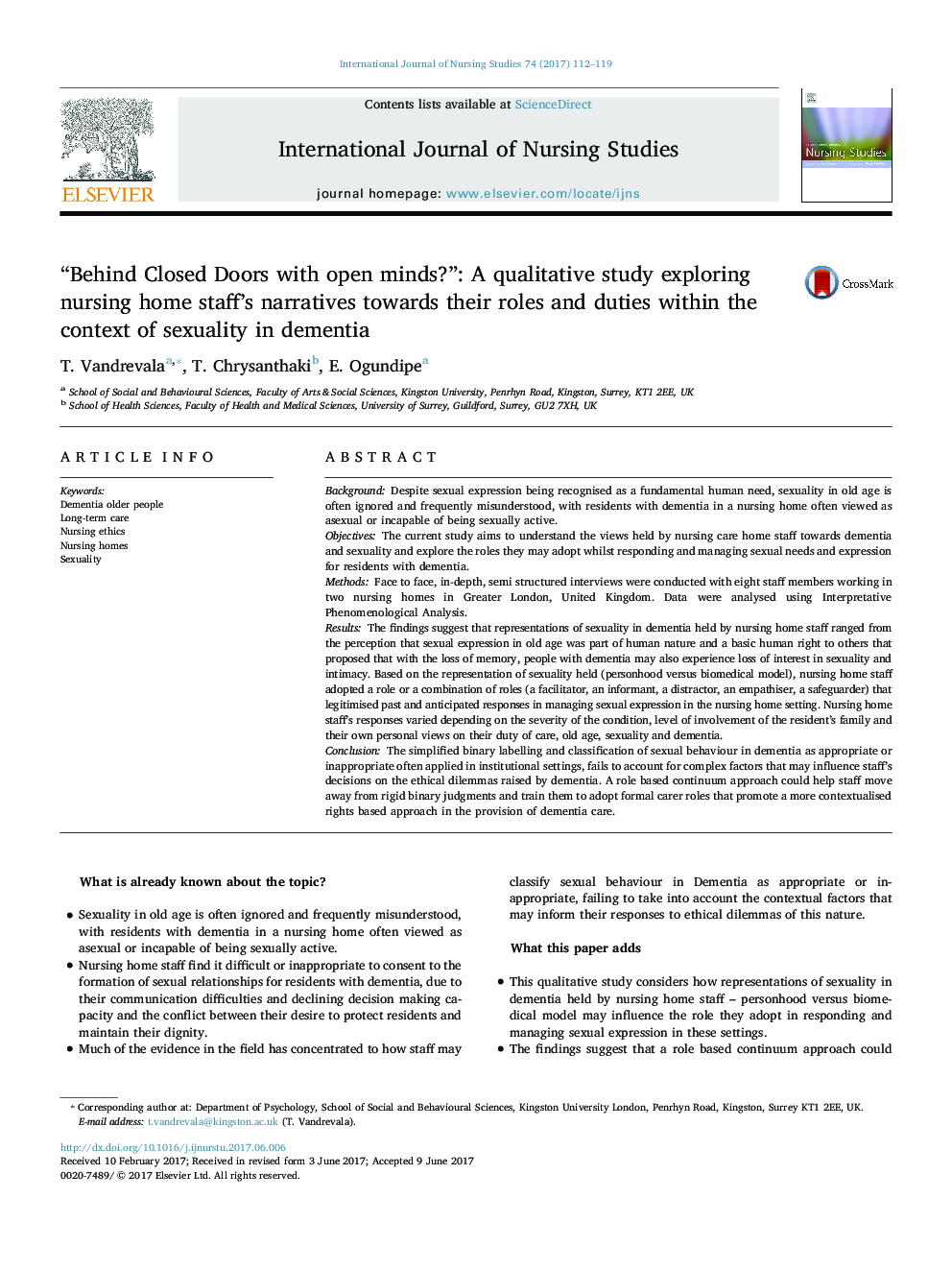| کد مقاله | کد نشریه | سال انتشار | مقاله انگلیسی | نسخه تمام متن |
|---|---|---|---|---|
| 5120973 | 1486495 | 2017 | 8 صفحه PDF | دانلود رایگان |

BackgroundDespite sexual expression being recognised as a fundamental human need, sexuality in old age is often ignored and frequently misunderstood, with residents with dementia in a nursing home often viewed as asexual or incapable of being sexually active.ObjectivesThe current study aims to understand the views held by nursing care home staff towards dementia and sexuality and explore the roles they may adopt whilst responding and managing sexual needs and expression for residents with dementia.MethodsFace to face, in-depth, semi structured interviews were conducted with eight staff members working in two nursing homes in Greater London, United Kingdom. Data were analysed using Interpretative Phenomenological Analysis.ResultsThe findings suggest that representations of sexuality in dementia held by nursing home staff ranged from the perception that sexual expression in old age was part of human nature and a basic human right to others that proposed that with the loss of memory, people with dementia may also experience loss of interest in sexuality and intimacy. Based on the representation of sexuality held (personhood versus biomedical model), nursing home staff adopted a role or a combination of roles (a facilitator, an informant, a distractor, an empathiser, a safeguarder) that legitimised past and anticipated responses in managing sexual expression in the nursing home setting. Nursing home staff's responses varied depending on the severity of the condition, level of involvement of the resident's family and their own personal views on their duty of care, old age, sexuality and dementia.ConclusionThe simplified binary labelling and classification of sexual behaviour in dementia as appropriate or inappropriate often applied in institutional settings, fails to account for complex factors that may influence staff's decisions on the ethical dilemmas raised by dementia. A role based continuum approach could help staff move away from rigid binary judgments and train them to adopt formal carer roles that promote a more contextualised rights based approach in the provision of dementia care.
Journal: International Journal of Nursing Studies - Volume 74, September 2017, Pages 112-119